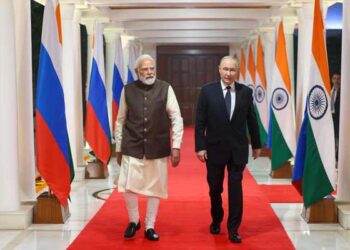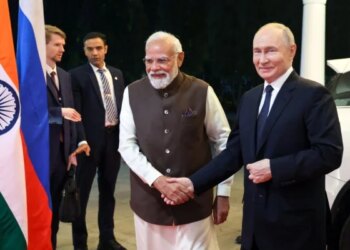Select Language:
Israeli troops observe the Gaza Strip from the Israeli side of the border as of July 30, 2025 — Reuters
– Germany’s foreign minister emphasizes that recognition of a Palestinian state should follow negotiations on a two-state solution, warning that Berlin will respond to any unilateral moves amid concerns over potential annexation by certain Israeli officials.
– Johann Wadephul, ahead of his trip to Israel and Palestinian territories, underscores Germany’s warning to Israel during heightened international pressure, while noting ongoing discussions in the UK, Canada, and France about possibly recognizing a Palestinian state at the upcoming UN General Assembly.
– Critics argue Germany’s stance remains overly cautious, hindered by historical guilt linked to the Holocaust and pro-Israel media influences, which may limit the West’s leverage over Israel.
– Wadephul maintains that a lasting resolution requires a negotiated two-state framework where both Palestinians and Israelis coexist peacefully. He warns that if unilateral steps are taken, Germany will be compelled to act.
– Israel’s government, led by Prime Minister Benjamin Netanyahu, includes far-right parties advocating for the total conquest of Gaza and the resettlement of Jewish settlements there, with some ministers supporting annexation of the West Bank.
– The Gaza conflict has resulted in over 60,000 deaths from nearly two years of fighting, with increasing civilian casualties from starvation and malnutrition amid widespread images of starving children, intensifying international criticism of Israel’s aid restrictions.
– Germany remains one of Israel’s strongest allies, along with the United States, citing a special responsibility rooted in the Holocaust legacy, often favoring diplomatic channels over public condemnations.
– Germany’s leading media group, Axel Springer, which publishes Bild, Welt, and Politico, formally commits to a pro-Israel editorial stance. Recent coverage has condemned Western pressure campaigns and praised Germany’s refusal to escalate tensions.
– Public opinion is shifting; a June poll revealed that 63% of Germans believe Israel’s campaign in Gaza has gone too far. Chancellor Friedrich Merz has suggested that measures like suspending EU relations with Israel are being considered to apply pressure.
– The European Union has proposed limiting Israeli access to certain research funds, though this measure lacks sufficient support, especially from Germany, to be implemented.







